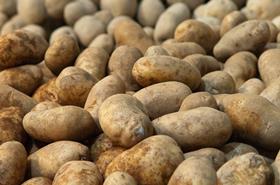
Australian researchers believe they can find a way to overcome pest and disease issues facing vegetatively propagated crops, thereby shifting public perceptions of genetically modified produce.
A study, being undertaken by the Queensland University of Technology through Horticulture Australia Limited’s research and development programme, will focus on cisgenics technologies, leading to what is essentially the modification of plants by using genes from their own species. This method differs from traditional genetic modification, which involves adding outside genetic material, often derived from bacteria, as markers into the plant DNA.
Initially, the research will be focused on bananas and potatoes, however, the platform technologies will have potential to be shared in other crops.
“Vegetative propagation, which is the process of producing a new sprout or plant by using a cutting from the parent plant, produces new plants which are essentially clones of the previous generation,” explained James Dale, project leader and director of the Centre for Tropical Crops and Biocommodities at the Queensland University of Technology.
“Being a clone, it’s impossible to make any genetic improvements along the way to help the plant cope with some of the common issues facing the wider industry, such as the challenge of maximising nutrient. This research will allow us to take an accepted variety of banana for example and correct the common problem such as disease while retaining the original variety.”
The research is expected to dispel negative perceptions of genetically modified foods, as no outside genetic material will be used on crops. Research will also be conducted into discovering techniques to provide stability of introduced genes across generations. This will ensure genetic improvements made to the original variety are carried to the next generation.



